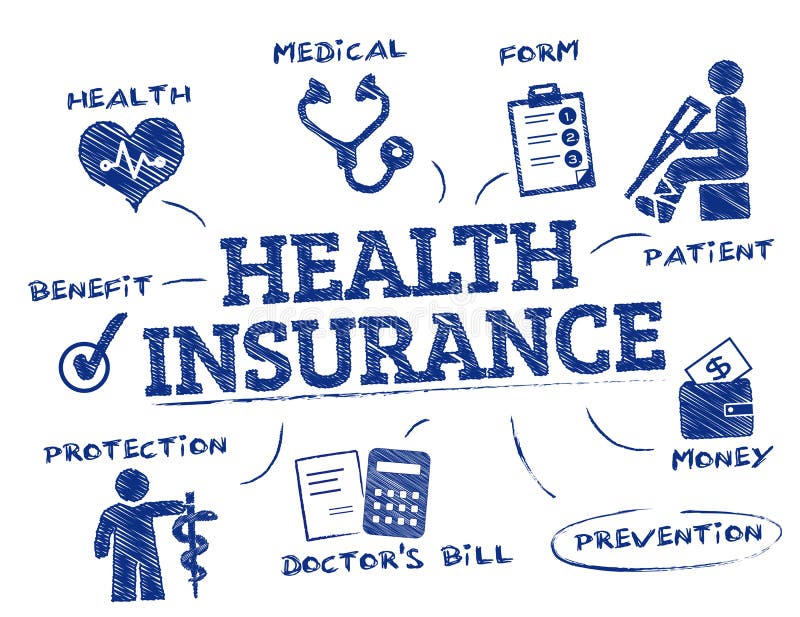Health Insurance Explained: Why You Need It and How to Choose the Best Plan
Health Insurance Explained: Why You Need It and How to Choose the Best Plan

In today's world, where medical costs are rising faster than ever, having health insurance is not just a smart financial decision — it's a necessity. One unexpected illness or emergency could wipe out your savings and leave you in debt. That’s where health insurance steps in to protect your health and your finances.
In this blog post, we’ll explore everything you need to know about health insurance — what it covers, types of plans, how premiums work, and tips to choose the right coverage for your lifestyle and budget.
What is Health Insurance?
Health insurance is a contract between you and an insurance company where the insurer agrees to pay for some or all of your medical expenses in exchange for a monthly premium. This includes coverage for doctor visits, hospital stays, surgeries, prescription drugs, and more, depending on the policy.
With health insurance, you don’t have to pay the full cost of medical services out of pocket. It helps reduce your financial risk when you need healthcare, especially for major or unexpected medical events.
Why You Need Health Insurance
- Rising Medical Costs: A single surgery or hospital stay can cost thousands of dollars. Insurance can dramatically reduce what you owe.
- Preventive Care: Most plans offer free screenings, annual checkups, and vaccines to catch health issues early.
- Peace of Mind: You’re protected in emergencies — from accidents to major illnesses.
- Chronic Illness Management: Insurance helps manage ongoing conditions like diabetes or asthma with affordable medication and follow-ups.
Types of Health Insurance Plans
There are several types of health insurance plans, and understanding the differences can help you choose wisely:
1. Health Maintenance Organization (HMO)
- You must use a network of doctors and hospitals.
- Requires a referral from a primary care doctor to see specialists.
- Usually has lower premiums and out-of-pocket costs.
2. Preferred Provider Organization (PPO)
- Offers more flexibility to see any doctor, even out of network.
- No referral needed for specialists.
- Higher premiums but more provider options.
3. Exclusive Provider Organization (EPO)
- Similar to PPOs but no out-of-network coverage (except emergencies).
- No referral needed, but limited network.
4. Point of Service (POS)
- Hybrid of HMO and PPO — needs a referral, but allows out-of-network care at a higher cost.
5. High-Deductible Health Plan (HDHP)
- Lower monthly premium, higher deductible.
- Often paired with a Health Savings Account (HSA).
- Good for people who are generally healthy and want to save on premiums.
Key Terms You Should Know
Understanding these common health insurance terms will help you make better decisions:
- Premium: The amount you pay monthly for the insurance plan.
- Deductible: The amount you pay out of pocket before your insurance starts to pay.
- Copayment: A fixed amount you pay for a medical service (e.g., $30 for a doctor visit).
- Coinsurance: The percentage you pay after the deductible (e.g., 20% of the bill).
- Out-of-pocket maximum: The most you’ll pay in a year before the insurer pays 100%.
How to Choose the Right Health Insurance Plan
Choosing the right health insurance is about balancing costs with your health needs. Here’s how to get started:
- Assess Your Health Needs: Consider how often you visit doctors, take prescriptions, or need specialist care.
- Set a Budget: Can you afford higher monthly premiums to lower out-of-pocket costs, or vice versa?
- Compare Networks: Make sure your preferred doctors and hospitals are in-network.
- Check Drug Coverage: Especially if you take ongoing medications, ensure they’re covered.
- Understand All Costs: Look beyond the premium — check deductibles, copays, and coinsurance.
Where to Get Health Insurance
You can get health insurance from different sources, depending on your situation:
- Employer-Sponsored Plans: Often more affordable, with partial employer contributions.
- Marketplace/Exchange: Available through government websites like Healthcare.gov or your state exchange.
- Private Insurance Companies: You can buy directly from insurers like Aetna, Blue Cross, or UnitedHealthcare.
- Medicare: For people over 65 or with certain disabilities.
- Medicaid: Low-income individuals and families may qualify for free or low-cost plans.
Final Thoughts
Health insurance may seem complicated, but taking the time to understand your options can save you from major financial and medical stress. Whether you're buying your first plan, switching policies, or looking for better coverage, the right health insurance can be life-changing — and even lifesaving.
Be proactive, stay informed, and protect yourself and your family. Health is wealth, and insurance is your investment in both.
Have questions or experiences with health insurance? Drop them in the comments below!


Comments
Post a Comment